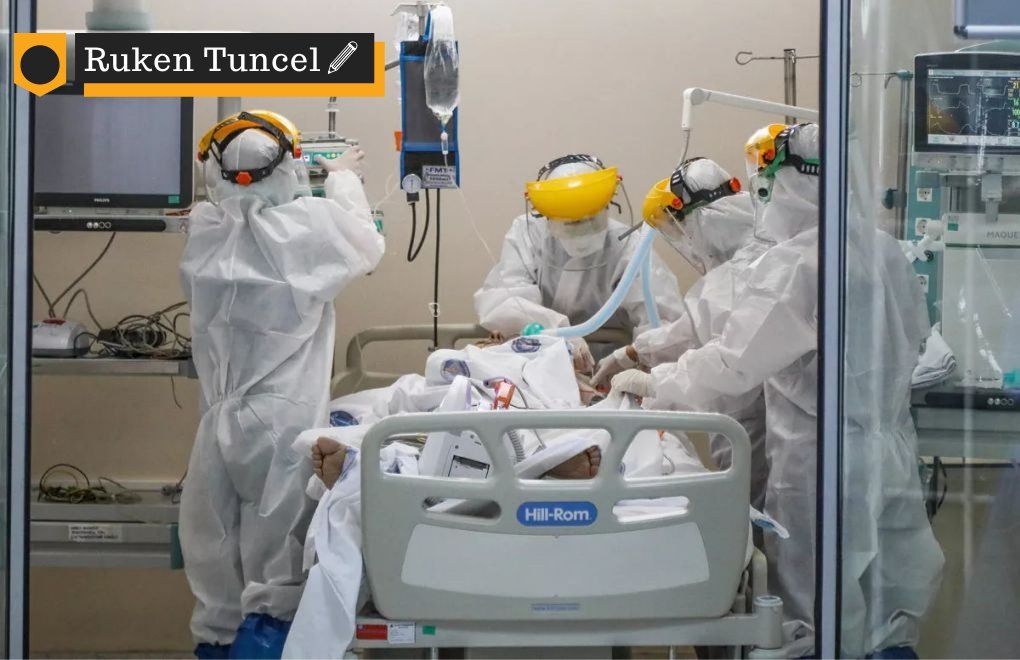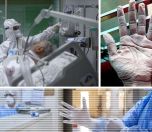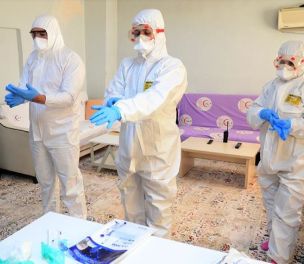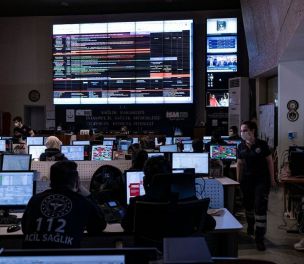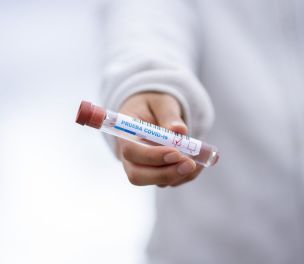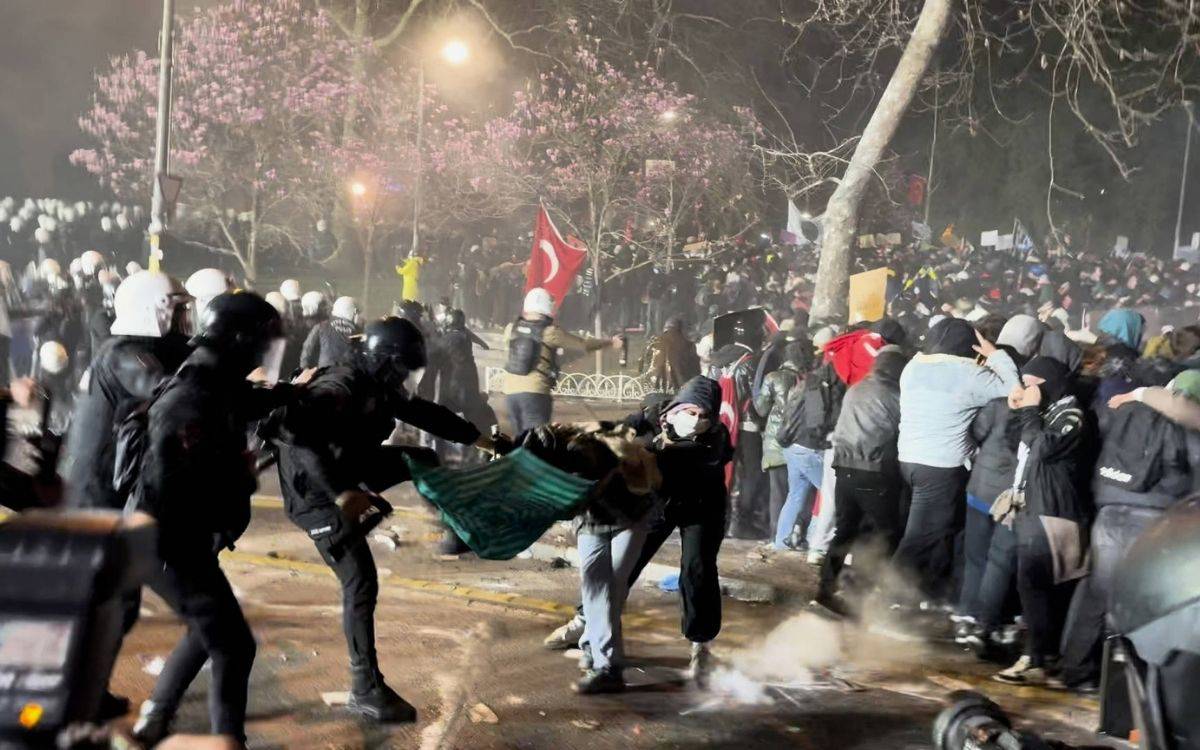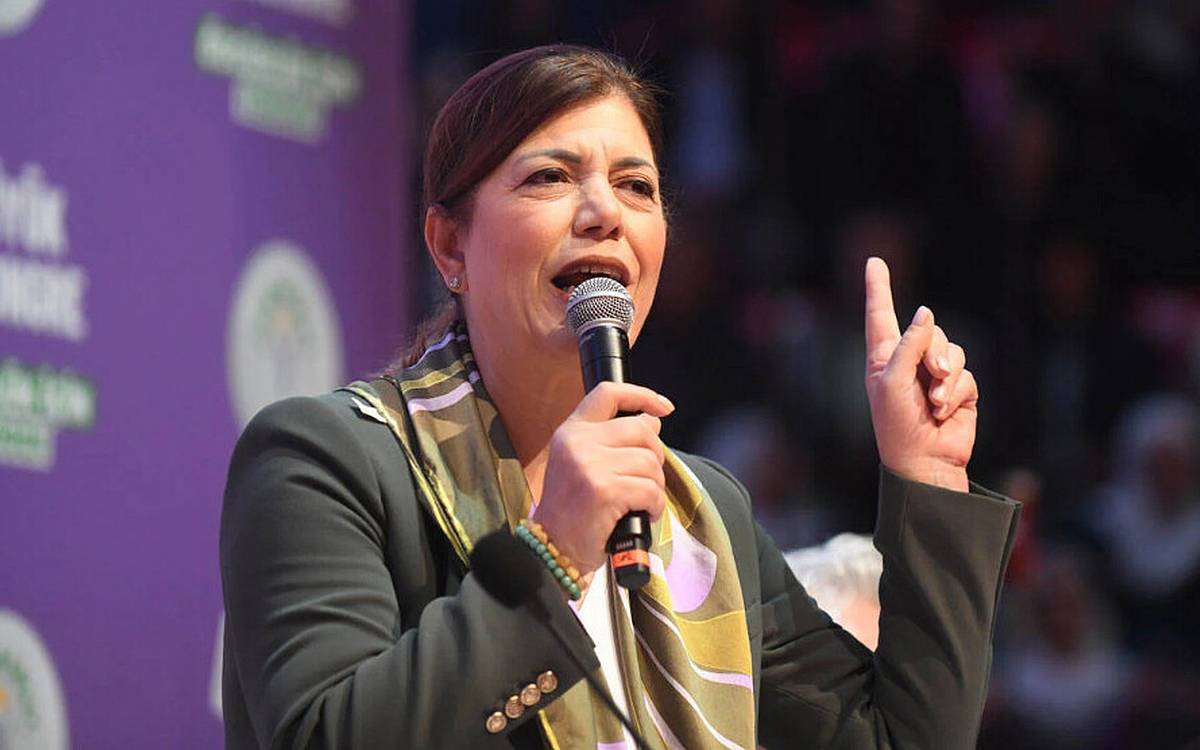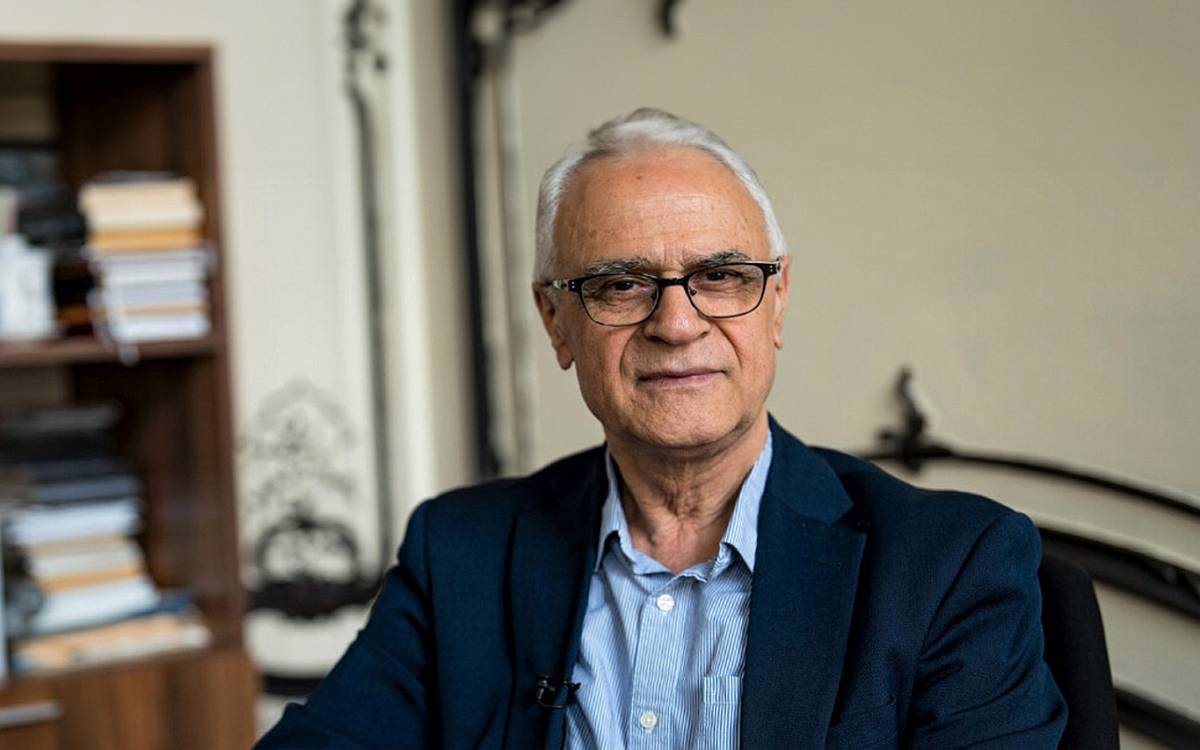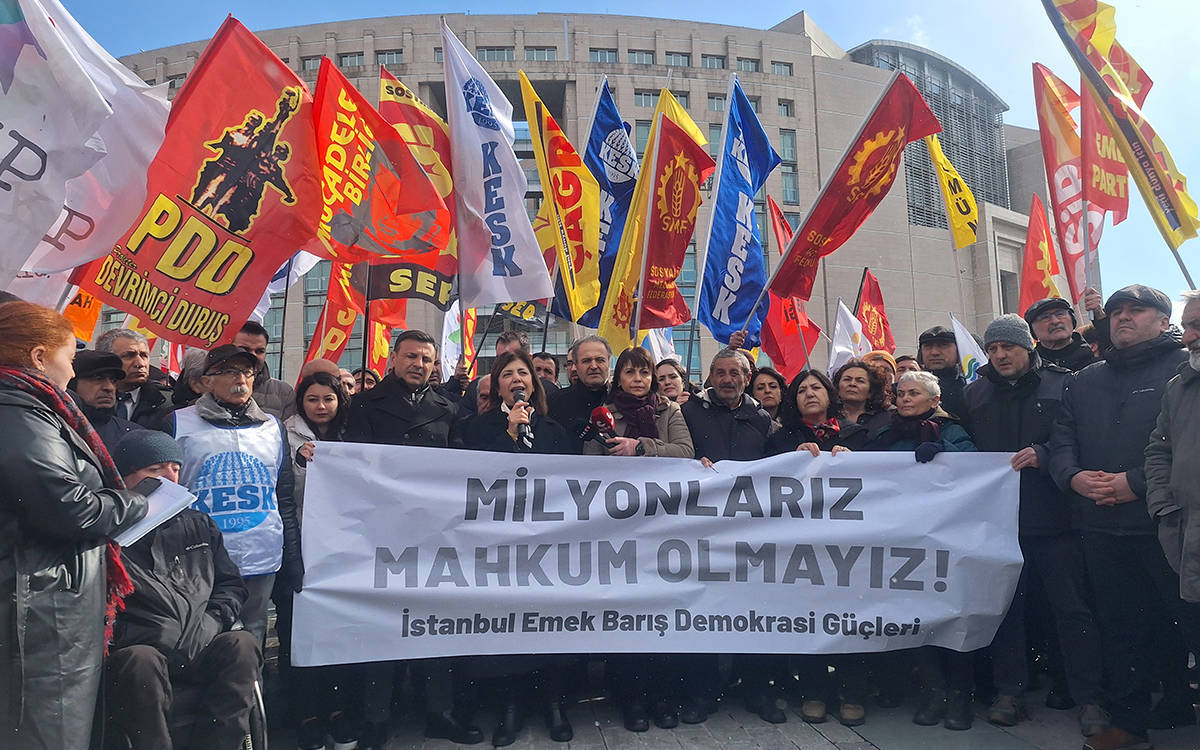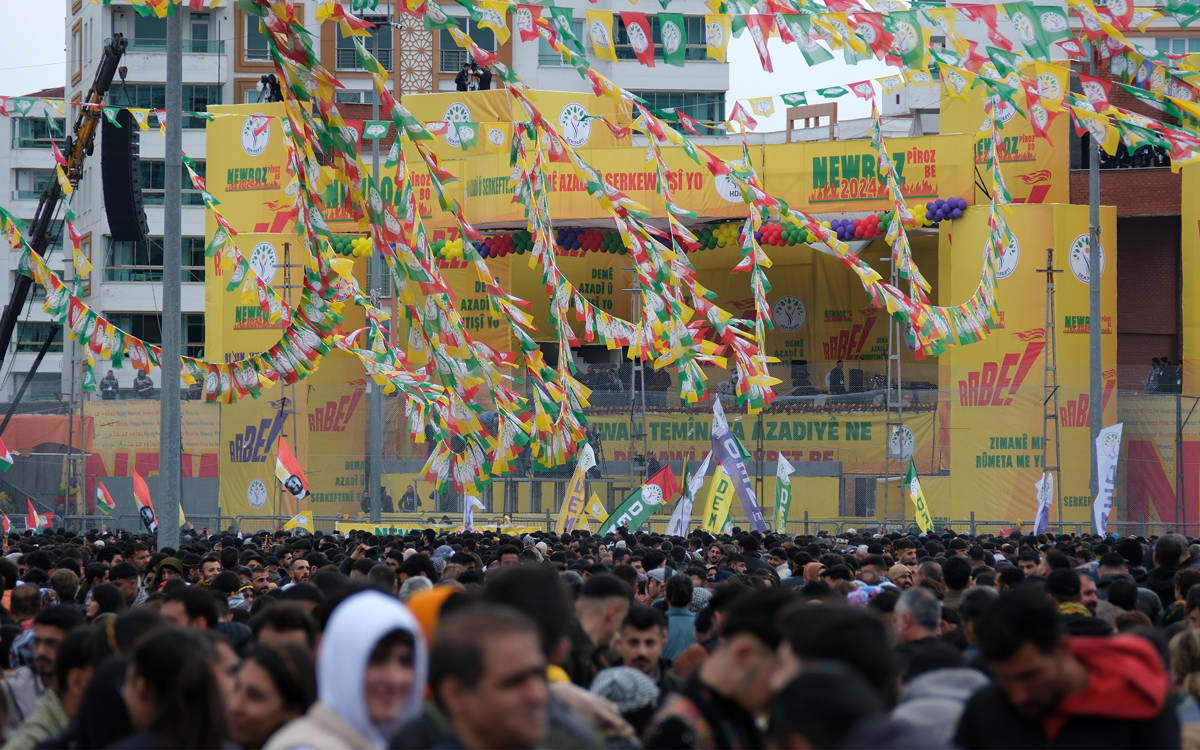* Photo: Twitter
Click to read the article in Turkish
Mehtap is 35 years old, she has been working for 20 years. First, she worked in textile for 7 years. Then, she started working in medical sector.
Mehtap used to work as a cleaning worker at a private hospital. For the last six years, she has been working at a well-known public hospital in İstanbul. She is registered as a cleaning worker there, but she actually works as a caregiver at the intensive care unit.
Mehtap likes her job a lot. Even though she sees several deaths, which is tiring for her psychologically, and even though she herself contracted coronavirus, she is still working at the intensive care.
Why?
Mehtap answers this question as follows:
"Because I like my job a lot, I like working at the intensive care. It is tiring, but helping people makes me happy. It might sound ridiculous to you that I risk my own health, but the job that I do makes me happy.
"My mother, father, husband and daughter wanted me to leave my job a lot after the outbreak. But, I couldn't do it. And, they have dismissed my husband. With rent, bills and all, it is not easy to quit your job just like that. What if I cannot find another job? When I contracted coronavirus, the hospital administration asked me whether I wanted to change my section or not. I told them that I didn't want to do it.
"Actually, we had cases before March 10, too. We were, of course, very uneasy. We were really afraid of not being able to go home or transmitting the virus to our families if the number of cases increased. But, we didn't expect that much. At first, there was a single death a week. Now, five people die a day. Very young people die before our eyes. When they are likely to get better, their conditions deteriorate in an instance and you lose them.
'They need us as much as they need doctors, nurses'
"Intensive care is not an easy place to work, it was difficult before the outbreak, too. You witness the struggle of people oscillating between life and death. You see their deaths, you place them in coffins. Maybe you don't know them personally, but it is still not easy. You get pitiless after some time, emotions leave you, but it is still very hard.
"But after the outbreak, everything has become different. Because, any time, the patient that you care for might be you or a loved one. You naturally get afraid, but you still don't leave, you cannot do it. Because these people that you see there need you as much as they need doctors and nurses.
'We work as a team'
"There are 100 intensive care units at the hospital. There are 10 patients at our intensive care. We work as two personnel. I care for five patients and my friend cares for the other five. Doctors, nurses and personnel attend to patients together.
"We work as a team. Doctors and nurses treat the patients, we care for them. We clean their bottoms and bodies, comb their hair and shave them. We change their lying positions every two hours so that wounds will not open on their bodies. But, there is an attitude like we don't exist in this process.
"We are in protective overalls for 12 hours, we soak wet. We eat in five minutes, because the condition of the patient might get worse and we accompany the doctor and nurse when they intervene. We could take a break to get some rest before, but taking off the overalls and get dressed is a waste of time in itself. We work without interruptions.
"But we are still not regarded as health workers, Minister of Health doesn't even feel the need to talk about us. We work by risking death. An additional payment was announced, it is not a large sum, but they literally ignored us. It affects one psychologically, being ignored makes one sad.
'We lost a fellow worker a week ago'
"One week ago, we lost a 40-year-old friend with no diseases due to the outbreak, our seven friends are still in treatment. I contracted the virus on March 23. I recovered after an eight-day treatment. I had a serious shortness of breath while working.
"I went to the emergency, I had a lung x-ray and it was found suspicious. I was tested, given medicine and told that I should stay home for 14 days. Shortness of breath abated a bit, but I had sharp joint pain. I got over it in eight days. I had another lung x-ray. I started working on the 15th day.
"We are going through a difficult period. We are aware of it with our physicians, nurses and other hospital personnel, we are doing our best. We work by risking both ourselves and our families. I sent my daughter to my mother's a month ago, we only talk on the phone. Almost all of us are in the same situation. We have equipments at the hospital, we don't have any shortages, but we want them to not ignore us." (RT/SD)





